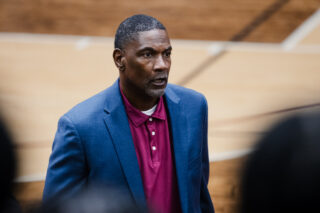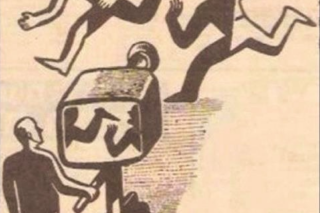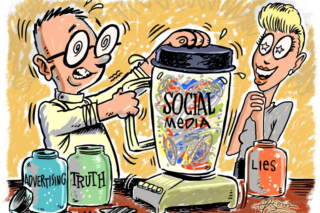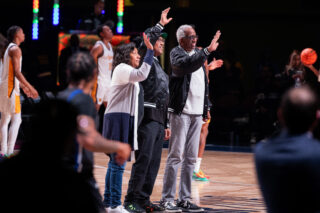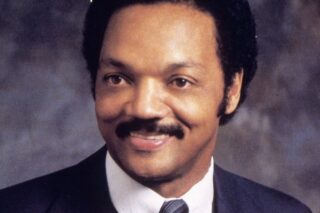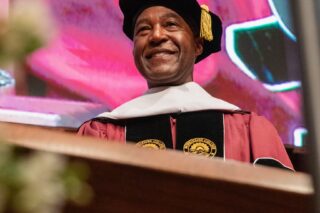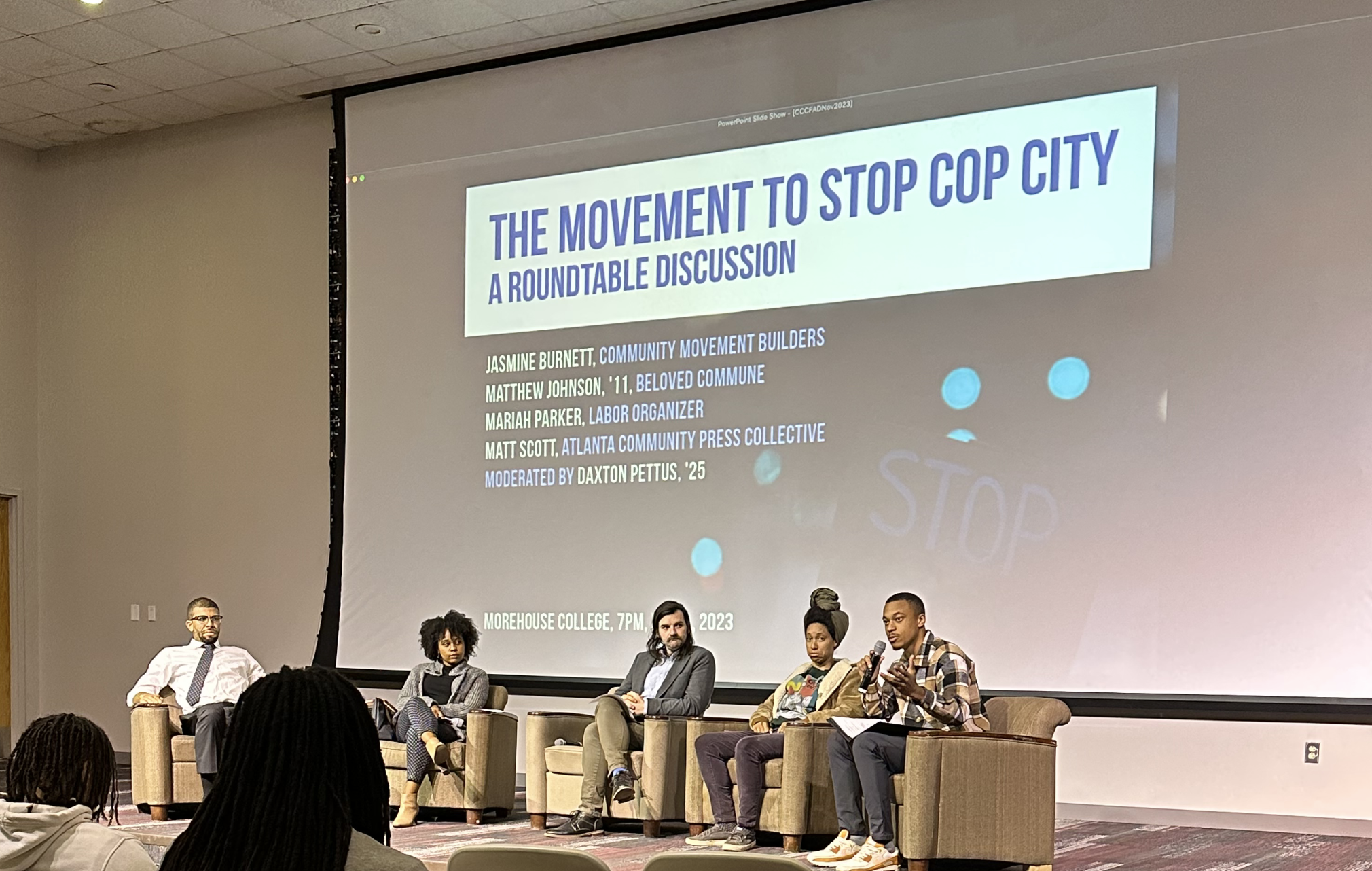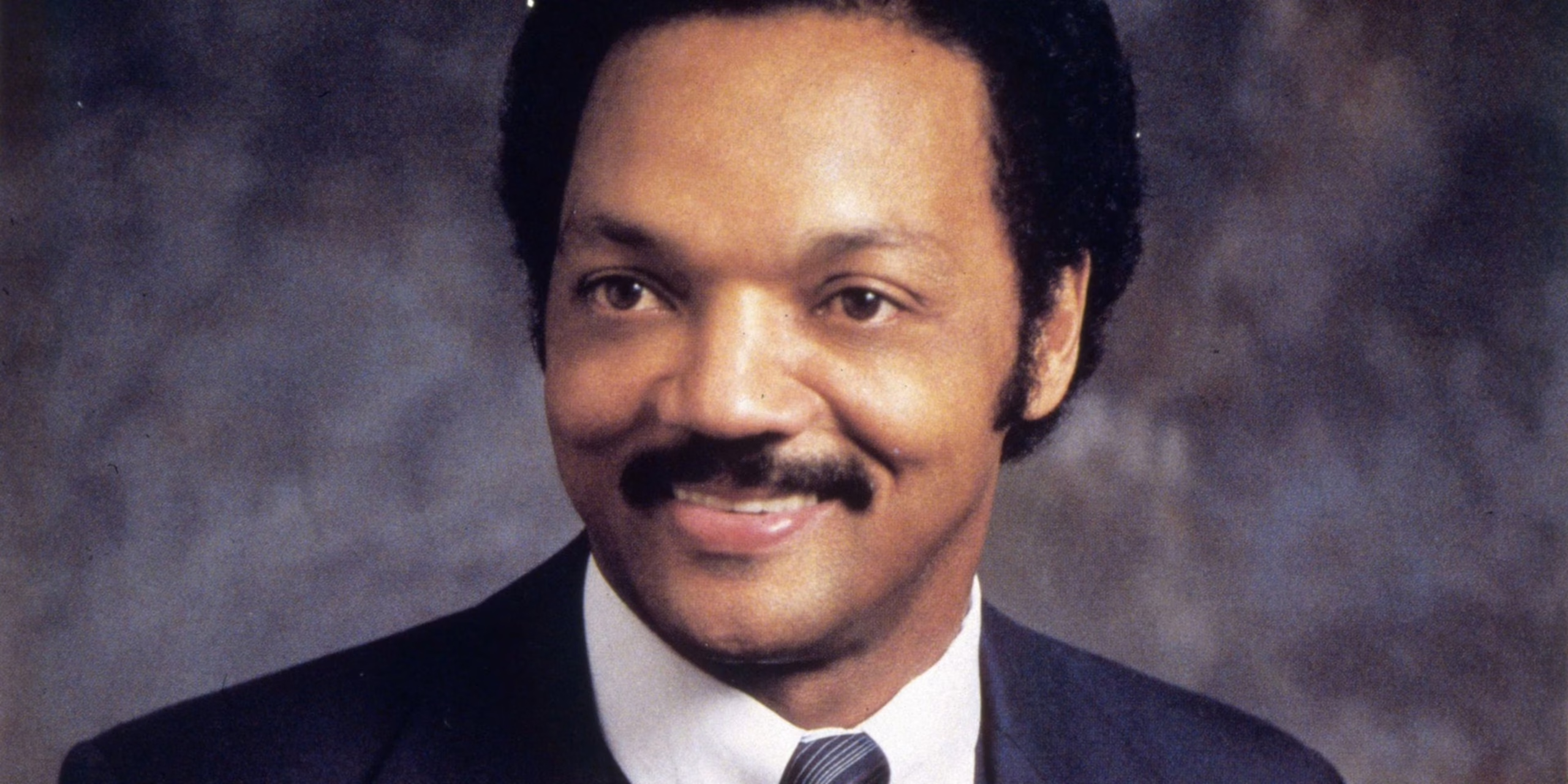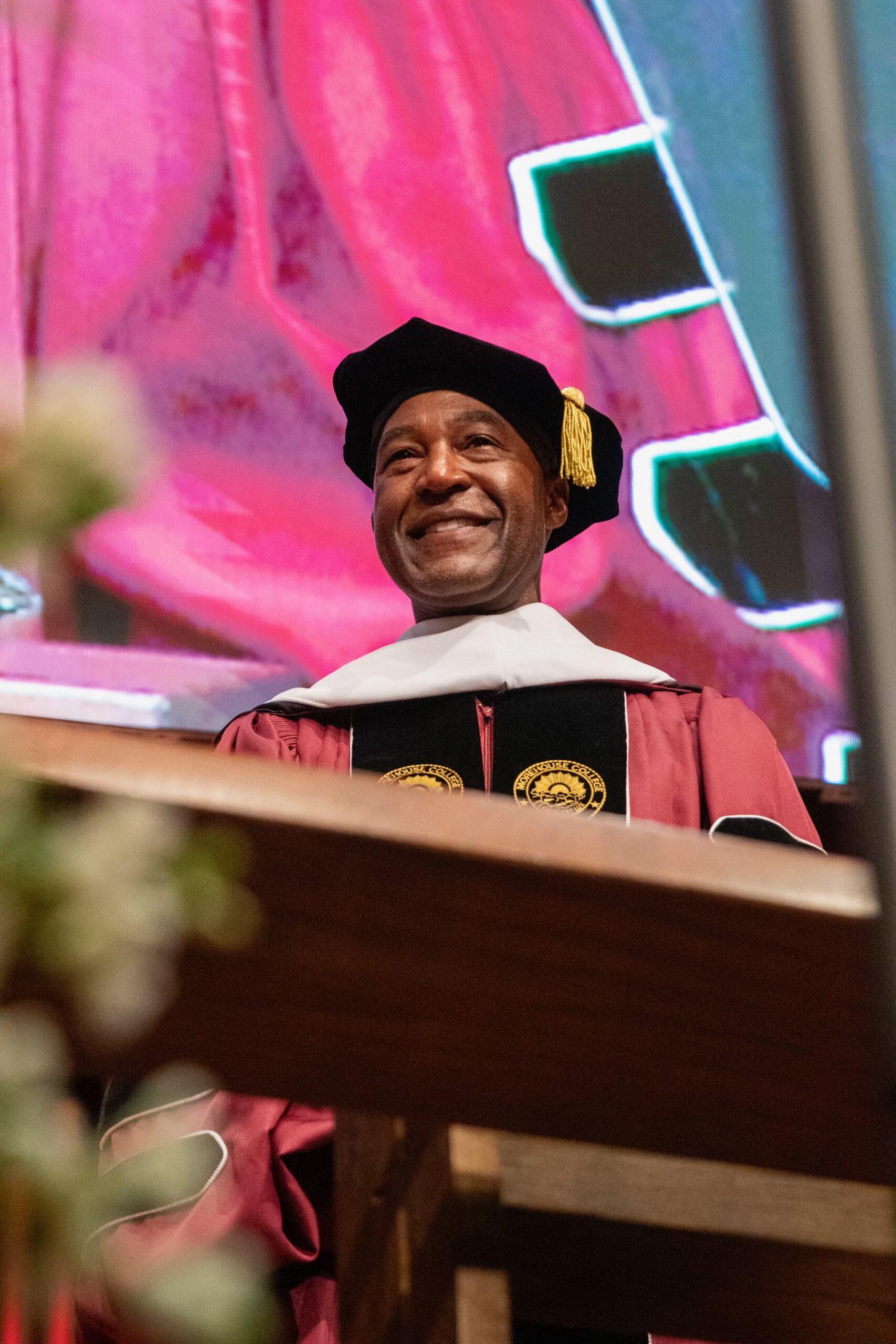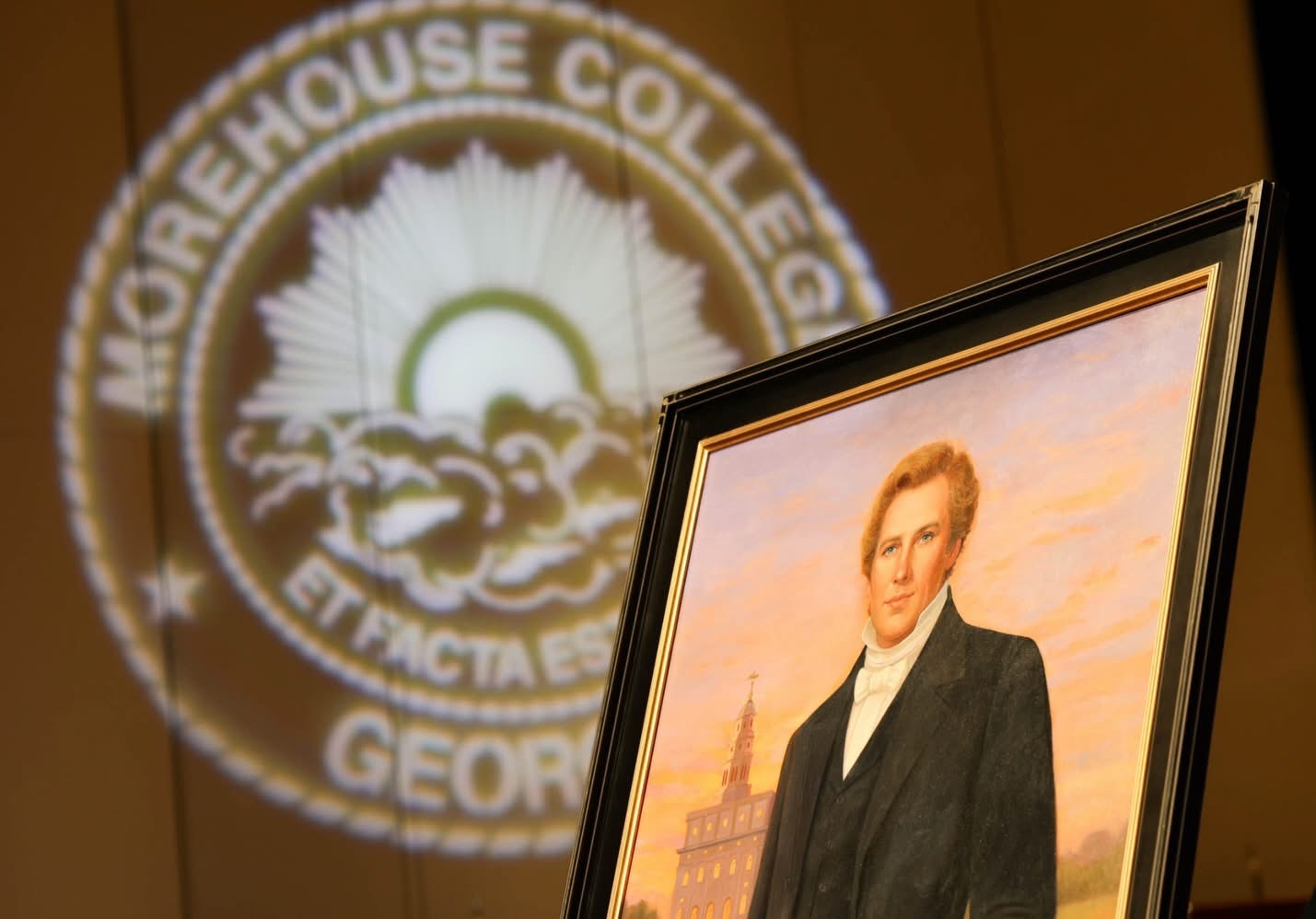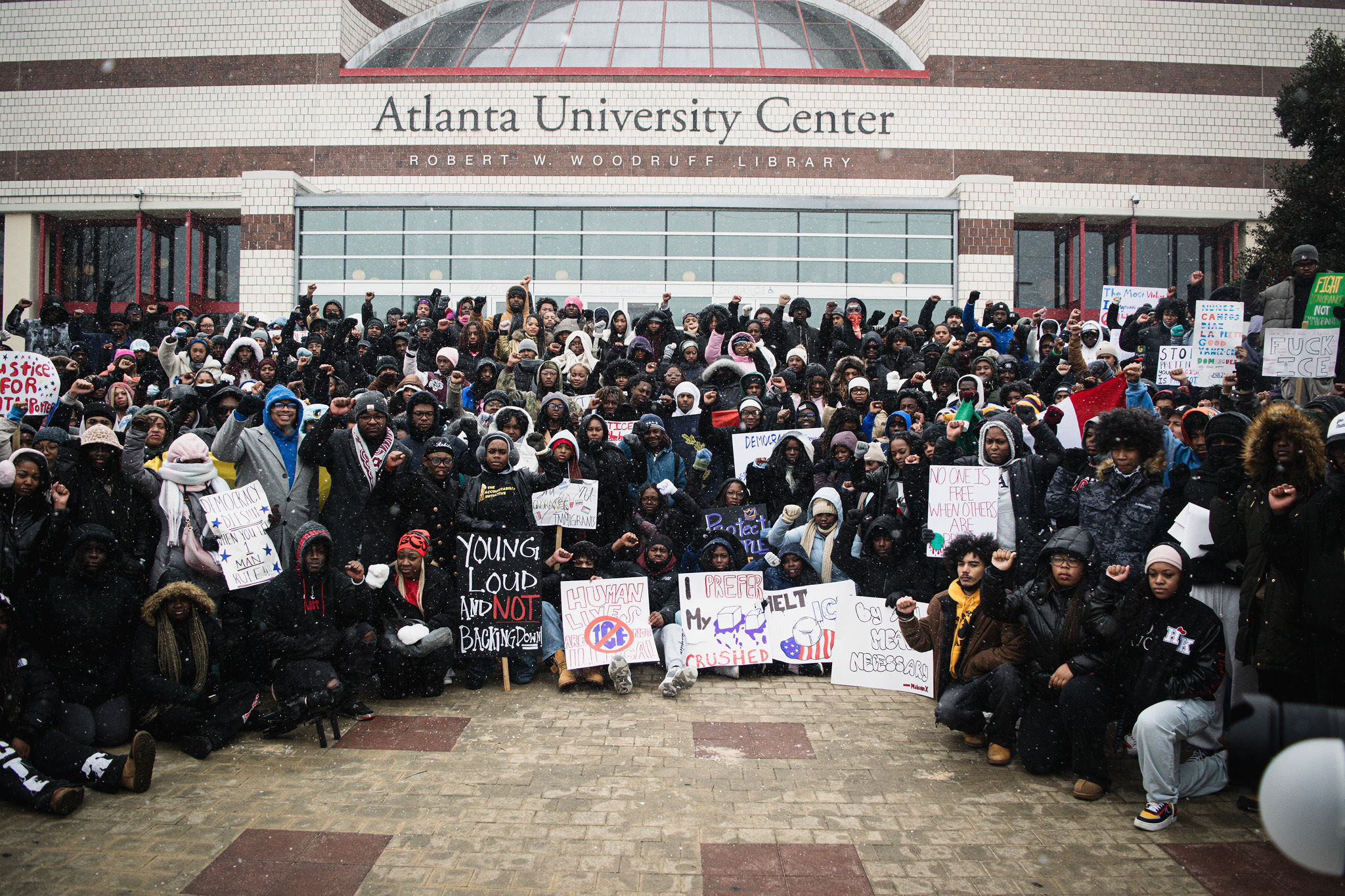Image via Evan Spann
By: Evan Spann, Staff Writer
Over the last year, Atlanta University Students have been outspoken against constructing the Atlanta Public Training Center (also known as Cop City). Wednesday, their movement to stop its construction continued through the “Movement to Stop Cop City” forum in the Bank of America Auditorium.
AUC students, local community members and documentary filmmaker Sam Coleman, who has been filming content on the movement against Cop City since this May, filled the room.
Past and present local government spending decisions, details on how the community organizations fight against Cop City, sacrifices each panel member has made for the cause, students’ role in resistance and viable solutions and more were among the topics of discussion.
Capitalism and the history of policing in America were two of the most compelling topics discussed. Burnett noted a distinct connection between the two.
The panel reminded the audience that despite Mayor Andre Dickens’ claims that neighboring communities support building the facility, most residents oppose it.
Community Movement Builders, is a Black member-based collective of community residents and activists serving Black working-class and poor communities. CMB emerged from a need to respond to encroaching gentrification, displacement and over-policing.
“Policing began in the south from slave patrols and in the north in response to labor organizers,” Burnett said.
She believes the construction of Cop City represents this historically based opposition toward movements of people who want to change the everyday experience for the better.
Scott is a journalist and organizer. Pettus hinted at the possible conflict that Scott faces as he attempts to cover the movement objectively while simultaneously advocating for a specific change to be made.
“It’s a dangerous job,” Scott said. “The difficulty is getting the info they don’t want us to have. Atlanta Community Press Collective started because of the lack of coverage from the Atlanta media ecosystem.”
Scott offered advocacy advice for the audience.
“We have become the info base for this issue,” Scott said. “My advice is for you all to get started now– don’t wait. We would have been better off getting started before Cop City.”
However, Scott reminded the audience that ACPC’s work is unbiased and fueled by factual reporting.
“Our coverage is abolition based. It is the frame of reference through our reporting,” Scott said. Our activism is not to tell people what to think; it is to carry the message of abolition. Our target audience is the everyday Atlantans who are not abolitionists,” he said.
Pettus demanded in his speech that Cop City be stopped. He took a second to hold the AUC accountable once again during the conversation.
“Listen, we all know the AUC contributes to gentrification. We have to acknowledge the role we play in issues,” Pettus said. “Us as an institution have to be different, change the way we interact with each other and how we lead and protect black people.”
Spelman sophomore economics major, Ava Johnson, attended the discussion wanting to hear from activists who are doing work on the ground against the training facilities. She learned the history of Cop City but gained more.
“I came out tonight because I have heard about Cop City and heard about the movement, but I feel like I have not had the chance to hear any key speakers or key organizers in it in person,” Johnson said. “What I have gained from it are my next steps and most importantly a community that also wants to advocate to stop Cop City as well, so I have taken away a lot of information.”
The goals of decentralized social justice movements throughout history have always been accused of not having a focus or being too vague. Parker believes this is not an issue with the effort to stop Cop City.
“No central group of people making decisions can be a struggle because of gaps in communication, but people standing with each other and working with each other unifies the many groups,” Parker said. “It creates the opportunity for folks to contribute what they have to the movement; this is the movement’s strength.”
As students asked questions, one asked how younger people can make an impact. Johnson promptly left the room with a valiant message.
“You are in the moral center of the African American community,” Johnson said. You all have something; you all have something right here.”
Copy Edited by: Auzzy Byrdsell, Editor-in-Chief

